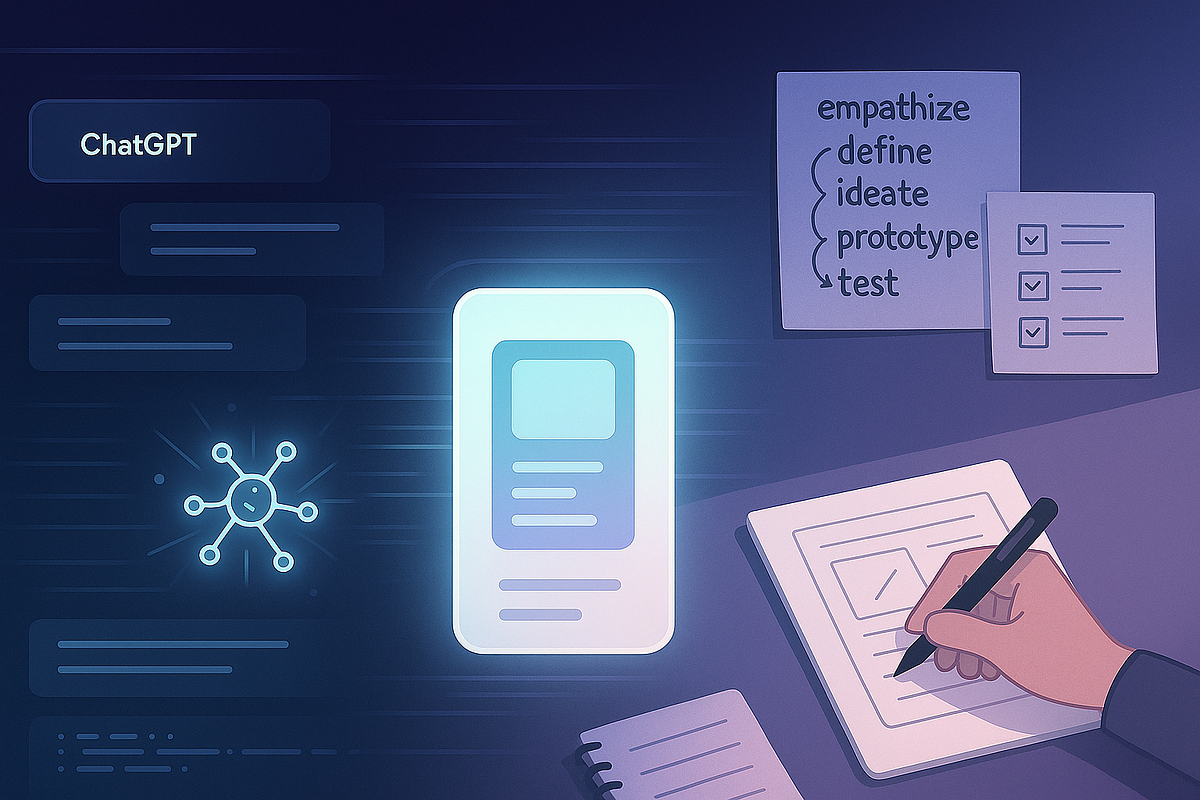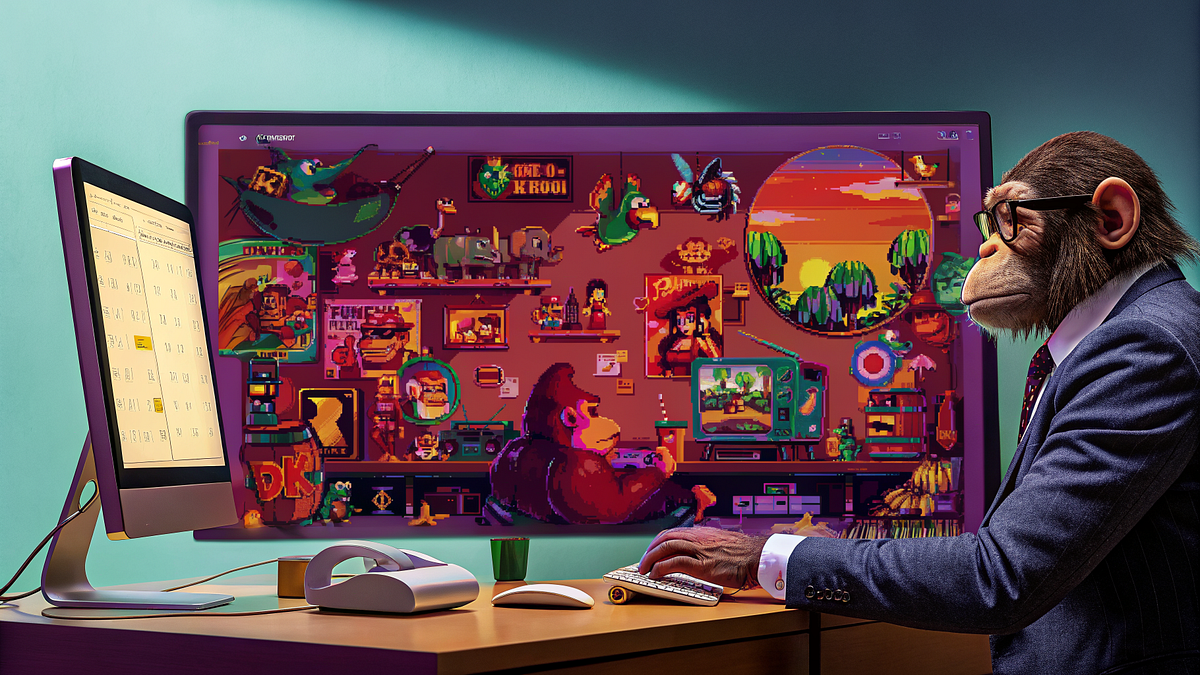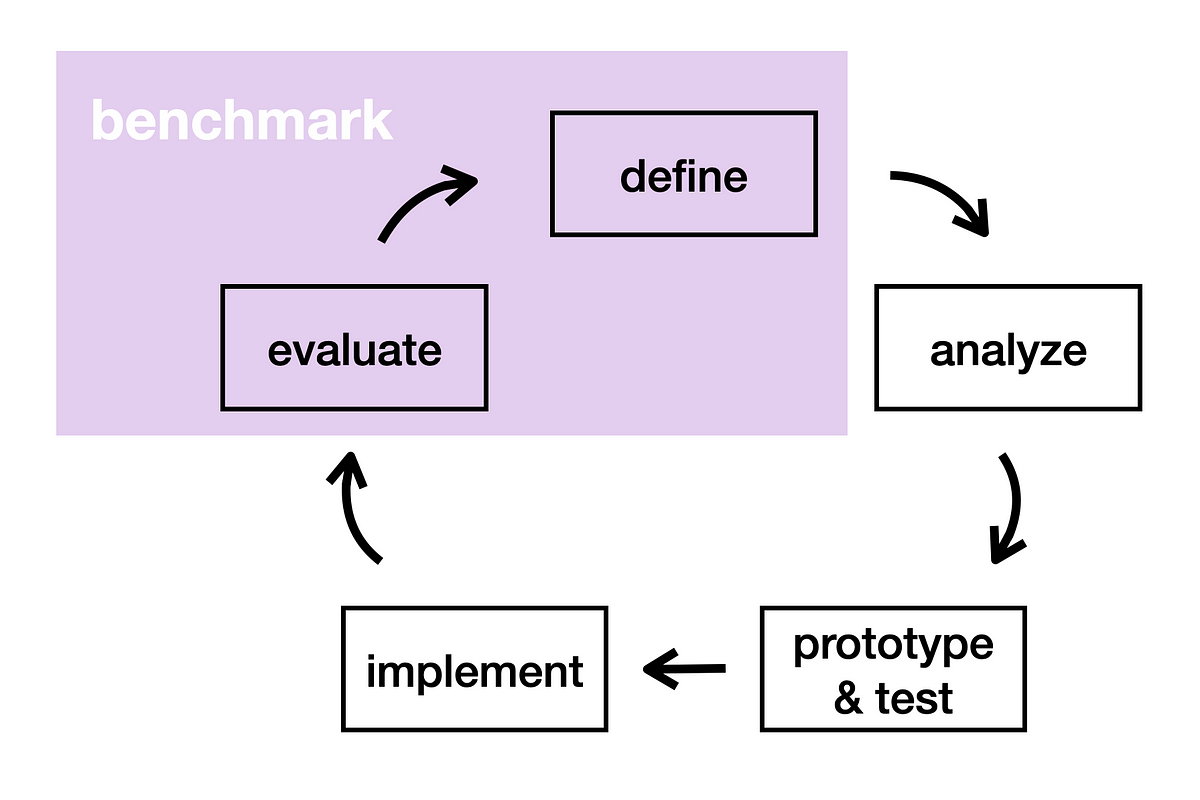#design-thinking
#design-thinking
[ follow ]
#user-experience #home-office #figma #innovation #prototyping #adjustable-desk #product-development #uxui
fromMedium
1 month agoEngineering After AI: Why Writing Code Is No Longer the Hard Part
A few years ago, engineering inside a company meant this:solve the problem that exists here. Even if the same problem had been solved elsewhere, we often didn't know.We didn't have access to that knowledge.We didn't have the tools.So we engineered our way through it. Engineering is always defined by the tools available and the impact they allow. And that's exactly why Generative AI changes things so fundamentally.
fromMedium
2 months agoI stopped using Figma for 70% of my product design work...and my output doubled.
Most design problems aren't 'design' problems. They're 'Thinking' problems.They're 'Clarity' problems.They're 'Too-many-tabs-open' problems. More prototyping. More pixel-shifting. More polish in Figma alone isn't going to help you with those. For me, without clear thinking, Figma just results in more confusion, more mess, and more mockups than I can mentally manage. The Problem: Figma wasn't the bottleneck - my thinking was
UX design
fromTreehouse Blog
2 months agoIntro to Design Thinking for Developers and Beginners
Design thinking is a practical, human-centered way to understand problems and create better digital experiences. It is not limited to designers. Developers, product managers, students, and anyone curious about improving how things work can use design thinking to explore ideas and build more thoughtful solutions. Many new learners begin exploring design through online coding courses, because understanding how digital products are built makes it easier to appreciate how design decisions shape the user experience. You do not need artistic skills or technical knowledge to begin.
UX design
Design
fromFortune
2 months agoHow two leaders used design thinking and a focus on outcomes to transform two Fortune 500 giants | Fortune
Design thinking can transform a massive enterprise culture by using empathy-focused, opt-in programs that treat teams as customers and embed designers into cross-functional teams.
fromMedium
3 months agoLet designers think
A process for thinking Inputs (Your brain (senses Hearing, smell, taste, sight, touch) + Rene Descartes Theory of Vision + Smart Phone AI + Illustory Truth Graph) and Outputs (Habits) A while back, I captured this provocation on LinkedIn by Darren Hood, which got me thinking. What does it take to "Let Designers think"? Thinking is the value we bring. Let's discuss more ways to carve out "thinking" time.
Design
fromMedium
4 months agoI stopped using Figma for 70% of my product design work...and my output doubled.
Most design problems aren't 'design' problems. They're 'Thinking' problems.They're 'Clarity' problems.They're 'Too-many-tabs-open' problems. More prototyping. More pixel-shifting. More polish in Figma alone isn't going to help you with those. For me, without clear thinking, Figma just results in more confusion, more mess, and more mockups than I can mentally manage. The Problem: Figma wasn't the bottleneck - my thinking was Like most UX/UI designers, I used to jump straight into Figma the moment I had a product idea or a design task to complete.
UX design
fromBusiness Insider
3 months agoSee inside KPMG's giant new NYC headquarters, which was designed based on employee input
Across KPMG's offices nationwide, employees say they prefer round tables. So with that feedback and more in mind, the Big Four consulting firm designed and opened a new, 450,000-square-foot office at Two Manhattan West in Manhattan's Hudson Yards neighborhood. The firm hopes the gleaming new headquarters will not only reassert its presence in New York City but also tempt its more than 5,000 employees in New York back to the office more often.
New York City
fromMedium
4 months agoI stopped using Figma for 70% of my product design work...and my output doubled.
Most design problems aren't 'design' problems. They're 'Thinking' problems.They're 'Clarity' problems.They're 'Too-many-tabs-open' problems. More prototyping. More pixel-shifting. More polish in Figma alone isn't going to help you with those. For me, without clear thinking, Figma just results in more confusion, more mess, and more mockups than I can mentally manage. The Problem: Figma wasn't the bottleneck - my thinking was
UX design
Artificial intelligence
fromInfoQ
4 months agoMental Models in Architecture and Societal Views of Technology: A Conversation with Nimisha Asthagiri
Architects integrate design thinking, systems thinking, change management, experimentation, and platform architecture to build responsible, agentic enterprises and scalable data products.
fromMedium
5 months agoCase studies are the real product
Designers at every stage - whether seasoned professionals or juniors just starting out - tend to place enormous emphasis on the final artifact. The polished app mockup. The slick responsive website. The cleverly executed logo. These artifacts feel like the fruit of our labor, and naturally, we take pride in them. A finished design is tangible. It's something you can click, hold, or admire on a screen. It feels like proof of progress and evidence that you did something real.
Design
fromMedium
6 months agoGut feeling, adopting the AI label, new UX process, genAI in research
Peirce believed abduction was the starting point of thought. The origin of all insight. It's how new ideas enter the room. It's what lets a product team hypothesize why a metric dropped. What lets a designer anticipate confusion before it happens. What lets a researcher frame the right question - not just analyze the data.
UX design
fromMedium
7 months agoGood metaphors, 11 commandments of AI UX, Figma shortcuts
Our understanding of the human body, particularly the brain and nervous system, has been profoundly shaped by the tools and technologies of each era. During the rise of mechanical craftsmanship, we began perceiving the body and brain as hydraulic systems and intricate clockwork mechanisms.
UX design
Graphic design
fromDan Ramsden - Design leader, information architect, content designer, magician
10 months agoThe purpose of UX Design - why product managers need UX designers and design leaders - Dan Ramsden - Design leader, information architect, content designer, magician
The emphasis in design has shifted from 'design thinking' to 'product thinking' in recent years.
[ Load more ]
















